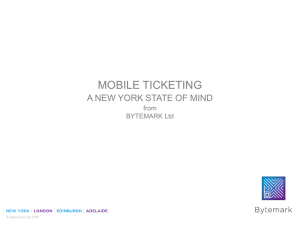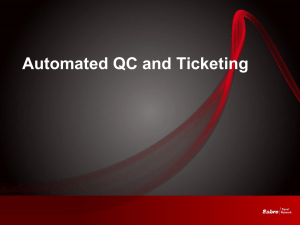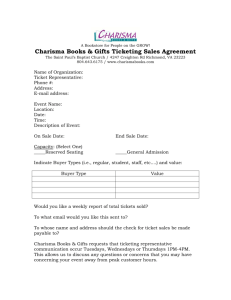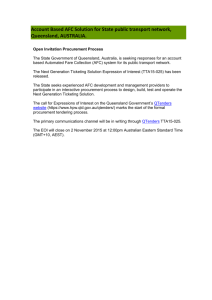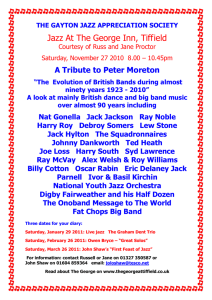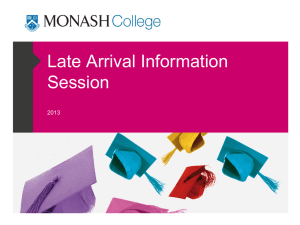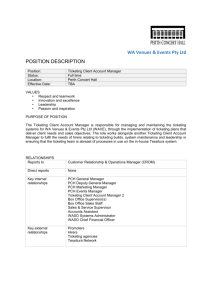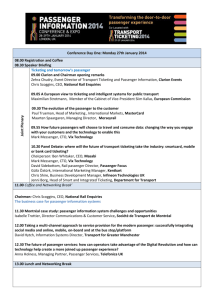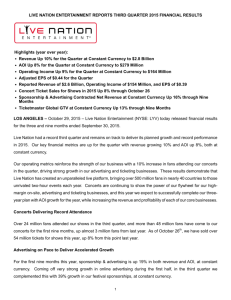docx 142 kB - AudienceConnect • CircuitWest
advertisement
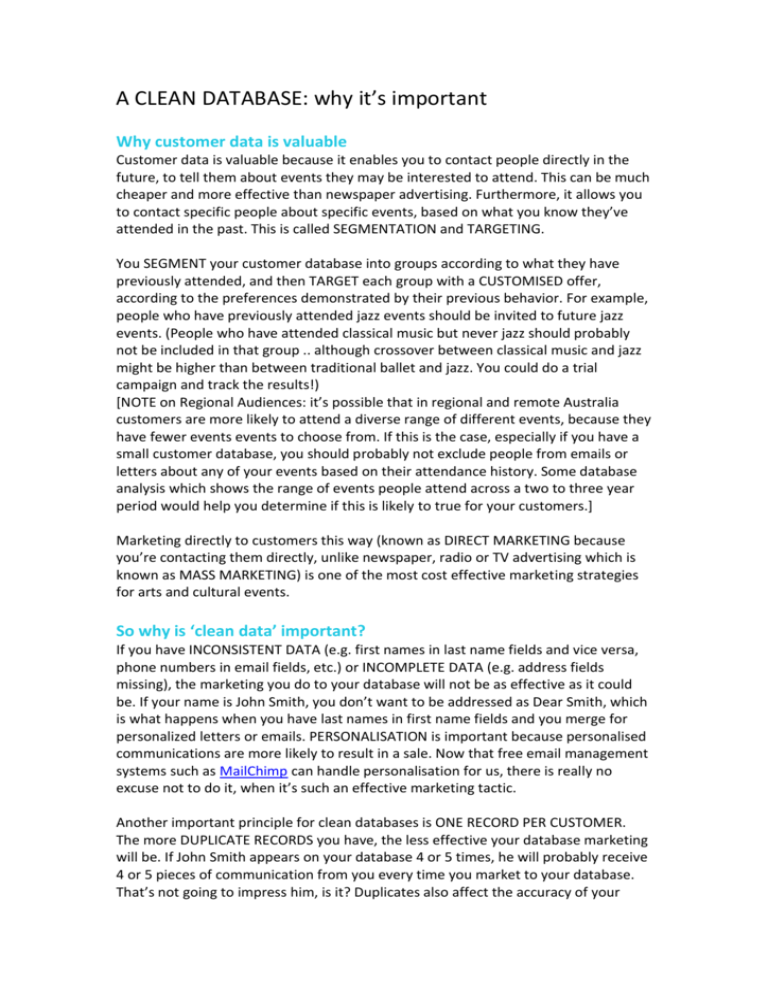
A CLEAN DATABASE: why it’s important Why customer data is valuable Customer data is valuable because it enables you to contact people directly in the future, to tell them about events they may be interested to attend. This can be much cheaper and more effective than newspaper advertising. Furthermore, it allows you to contact specific people about specific events, based on what you know they’ve attended in the past. This is called SEGMENTATION and TARGETING. You SEGMENT your customer database into groups according to what they have previously attended, and then TARGET each group with a CUSTOMISED offer, according to the preferences demonstrated by their previous behavior. For example, people who have previously attended jazz events should be invited to future jazz events. (People who have attended classical music but never jazz should probably not be included in that group .. although crossover between classical music and jazz might be higher than between traditional ballet and jazz. You could do a trial campaign and track the results!) [NOTE on Regional Audiences: it’s possible that in regional and remote Australia customers are more likely to attend a diverse range of different events, because they have fewer events events to choose from. If this is the case, especially if you have a small customer database, you should probably not exclude people from emails or letters about any of your events based on their attendance history. Some database analysis which shows the range of events people attend across a two to three year period would help you determine if this is likely to true for your customers.] Marketing directly to customers this way (known as DIRECT MARKETING because you’re contacting them directly, unlike newspaper, radio or TV advertising which is known as MASS MARKETING) is one of the most cost effective marketing strategies for arts and cultural events. So why is ‘clean data’ important? If you have INCONSISTENT DATA (e.g. first names in last name fields and vice versa, phone numbers in email fields, etc.) or INCOMPLETE DATA (e.g. address fields missing), the marketing you do to your database will not be as effective as it could be. If your name is John Smith, you don’t want to be addressed as Dear Smith, which is what happens when you have last names in first name fields and you merge for personalized letters or emails. PERSONALISATION is important because personalised communications are more likely to result in a sale. Now that free email management systems such as MailChimp can handle personalisation for us, there is really no excuse not to do it, when it’s such an effective marketing tactic. Another important principle for clean databases is ONE RECORD PER CUSTOMER. The more DUPLICATE RECORDS you have, the less effective your database marketing will be. If John Smith appears on your database 4 or 5 times, he will probably receive 4 or 5 pieces of communication from you every time you market to your database. That’s not going to impress him, is it? Duplicates also affect the accuracy of your sales reports: if you’re trying to figure out how many first timers, second timers, third timers, etc you have on your database, when John Smith has one attendance recorded against each of his records, he’ll be counted as 4 or 5 first-timers, instead of one 4th or 5th time attender. So you’ll be getting a totally inaccurate picture of the frequency of attendance across your database. Also, of course, it’s important to have CURRENT and ACCURATE data. No point having an old email address for someone, it’s just going to bounce back. Old mail addresses are even more frustrating: it’s costing you money every time you mail to them, even though you haven’t reached them. Part of your Database or Box Office/Ticketing Manual should encourage ticketing staff to check contact details every time a customer books for an event, whenever they have time. This helps ensure your data remains current. Other tactics like including ‘do we have your correct address?’ in all mailings, and a link from all emails to a place on your website where people can update their details, is also a great idea. How often should you clean your database? The best way to achieve a clean database is to have a regular clean up routine. One of the best routines for maintaining a database is managed by Peta at Bunbury Regional Entertainment Centre. (INSERT CASE STUDY/VIDEO LINK/QUOTE) Collecting customer data When you run your own ticketing system, you have the ability to collect names, contact details and attendance histories for your customers. If you collect customer data you will need to have a system established to ensure that each customer account or record is structured the same way and that data is collected and entered consistently and completely. This information should be written down in a Database or Box Office/Ticketing Manual and regularly reviewed by ticketing staff to ensure everyone sticks to it. Reminders of key points at each ticketing computer screen are a good idea. You will need separate fields for first name, last name, salutation (i.e. Mr, Ms, Dr etc), email address, phone number(s), street address, suburb, state and postcode, and perhaps others. Everyone who enters a new customer must be sure to enter data consistently according to your rules – e.g. capitalized first letters for first names and last names, areas codes for phone numbers, mobiles preferred over landlines, email addresses preferred over street addresses, etc. If you are planning to communicate increasingly by email (as many organisations are), make sure you double check email addresses for accuracy as one incorrect character will result in bounce-backs when you send emails. If you want to send SMS messages for reminders or special offers, make sure you collect mobile phone numbers. Ideally, every sale on your ticketing system will be made into a customer account, so that over time you build up complete and accurate purchase histories for every customer. Sometimes the box office gets too busy to collect new customer details and create new accounts, but these periods should be kept to an absolute minimum (e.g. if there’s a queue 15 minutes before a show starts it’s often unavoidable). A great resource on database marketing in the arts, which contains specific hints on how to set up and maintain a good clean database, is FULL HOUSE: turning data into audiences, by Roger Tomlinson and Tim Roberts. It’s available from …. (website currently showing out of print .. not sure whether it’s available any more. If not, delete this paragraph.)

